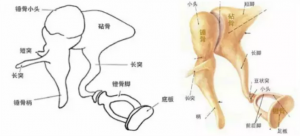Geriatric depression and Alzheimer’s disease rank first and second respectively in the incidence of mental disorders in the elderly. However, in some cases, old age depression is treated as senile dementia, which leads to delays in the disease and affects rehabilitation. How should the two distinguish between them? Fang Yaming, chief physician of the Department of Geriatric Psychiatry, Corning Hospital, Shenzhen, introduced this.
1, depression in the elderly, more than dementia
Depression is one of the most common mental disorders in old age. With the prolongation of life expectancy, the aging of society, and the increasing incidence of senile diseases, depression in the elderly will become more common. According to the World Health Organization, in the elderly population, depressed people account for 7%-10%; half of the elderly with physical illnesses are accompanied by depression. The survey of mental illness in the elderly around the world shows that depression is the highest incidence among the elderly, followed by Alzheimer’s disease.
Fang Yaming pointed out that if the elderly in the family are often depressed, insomnia, forgetfulness, eating without appetite, and unwilling to participate in various activities, then he may suffer from senile depression. High-risk groups of geriatric depression include elderly people who are alone, old people who feel lost after retirement, or old people who have just experienced grief in their lives. In addition, among stroke or heart disease patients, 20% of people also fall into a state of depression, while women are twice as likely to suffer from depression as men.

2, pay attention to the early signs to avoid misdiagnosis
Old age depression can cause great harm to the body and mind, but for various reasons, depression is often misdiagnosed. It is common in the clinic that some elderly people have come to the general hospital for treatment many times before they come to psychiatric treatment, so the symptoms of senile depression are pre-symptoms. The focus is especially important.
Fang Yaming pointed out that headache and dizziness are common signs of depression in the elderly. If the headache can be expressed as pain, dullness or jumping pain, but it can generally be tolerated; most of them are tension headaches and non-migraine vascular headaches, and there is no special fixed position in the pain area, so such elderly people often feel the head This hurts. Dizziness is often manifested by feelings of rising or top-heavy after getting up in the morning, and the feeling of dizziness at noon is aggravated. Fang Yaming said that about half of all elderly patients with depression will develop this symptom.
In addition, there is a sleep problem: about 48% of people with depression are the first symptoms of insomnia.
The early signs of senile depression include: sweating, sweating when you are emotionally excited or slightly active, especially in the head, torso, hands and feet, and even sweating when you say something in a lively situation. Painful, short-sighted, patients with anxiety, nervousness, palpitations, chest tightness, shortness of breath, feeling poor breathing, often suspected that they had coronary heart disease, usually tired and weak, tone of voice is also weak; loss of appetite, stomach full, Bored, snoring, eating and tasteless, stomach pain after a meal, consciously ventilated in the abdomen, greasy in the mouth, and even feel nausea and vomiting; pain in the body, limbs, shoulders, knee joints, back, waist pain Sour and sorrow, the examination found no abnormalities, but always felt uncomfortable, cold feet and calves, still not effective after taking warm measures and drug treatment; squinting, tinnitus, feeling blurred, read the newspaper and think that the two lines are moving to each other Position or tremor, but the eye examination is normal, before the rest or bed, or after a burst of noisy, there will be various sounds in the ear, the patient is restless, Treatment refractory.
If these symptoms appear, be alert to the elderly may be suffering from depression.

3, different from Alzheimer’s disease
Case: The family once suspected that 70’s Wang Apo had dementia. After her husband passed away last year, she has been in sorrow, taciturn, and rarely goes out, always feeling unhappy. She also became particularly forgetful. She didn’t forget to bring her wallet or forget the key. She also blamed the babysitter for stealing, so she lost her temper with the babysitter and locked her room, but she was very polite to the outside world. After being sent to the general hospital, Wang Apo was diagnosed with Alzheimer’s disease, but after half a year of treatment, the effect was not obvious. Later, he was diagnosed with senile depression by a psychiatrist. After only two weeks of treatment, his condition improved significantly.
“The elderly face a sudden major mental stimulation, and emotional depression occurs over a period of time. This is normal and not morbid. But if there is persistent depressive symptoms and progresses to a serious degree, it is necessary to consider whether you have depression. At this time, special attention should be paid to the difference between Alzheimer’s disease, so as not to delay the illness and affect the rehabilitation.” Fang Yaming said. He explained that in some elderly patients with depression, when their condition progresses to a serious stage, their thinking and movements are inhibited (especially inhibition of thinking), and some clinical manifestations similar to Alzheimer’s disease appear. The identification of senile depression and Alzheimer’s disease can be carried out in the following aspects.
(1) First, the onset and the course of the disease are different: in comparison, the onset of depression in the elderly is faster and faster, and the onset and development of dementia are slower.
(2) From the persistence of symptoms: Alzheimer’s patients have more emotional changes, unstable, like young children, unlike the depression of old age depression will last longer.
(3) From a smart point of view: elderly people with depression sometimes seem to show signs of intelligence, but the obstacles are temporary and partial, each time the results of the smart test are different; and the intelligence of patients with dementia The damage is comprehensive and progressively worse.
(4) Is there a symptom of the central nervous system: elderly patients with depression do not have symptoms of the central nervous system, and brain CT findings are not positive; in the case of dementia patients, the opposite is true, they have symptoms of the central nervous system. Signs and signs, many patients also have a history of hypertension, arteriosclerosis or “small stroke”, brain CT examination will find varying degrees of brain atrophy or (and) cerebral infarction.
(5) Antidepressant drugs have different effects: After using antidepressant drugs, elderly patients with depression will begin to recover and return to the pre-existing state of mind; and antidepressants do not have any effect on patients with Alzheimer’s disease. However, it should be noted that some people with Alzheimer’s disease also have some depressive symptoms in the early stage of the disease, much like elderly depression, but only in the middle and late stages of the disease, the true face of Alzheimer’s disease will be fully demonstrated.
Older women should pay more attention to prevention and treatment of depression
“Patients with depression in the elderly are mostly introverted. They don’t like communication before the onset of illness. If they are not understood or misunderstood by their family, colleagues, or friends after the onset of illness, they may be difficult to get rid of the shadow of depression and unfavorable rehabilitation. Therefore, warmth and warmth. The family and proper social interactions are themselves a good medicine, which helps elderly people with depression to spend gray depression,” Fang Yaming said. Because older women have a disproportionate proportion of 25%, which is much higher than that of older men, Fang Yaming emphasizes that it is more important for older women to fight depression. He explained that this is because women have to undergo lactation, pregnancy, menopause, etc., and they are more susceptible to hormone secretion than men in their lifetime. They are more likely to suffer from depression than men. “And menopausal women suffer from it. If you have menopausal syndrome, the vast majority of them will have depressive symptoms of varying degrees. If you do not receive correct and thorough treatment at that time, you will often be dragged into chronic depression. When you are old, you will have repeated episodes, which will greatly affect your later years. Quality of life”.

Link:What is the difference between geriatric depression and Alzheimer's disease?
REF: Hearing amplifier, Hearing Aids Types, Digital Hearing AidsThe article comes from the Internet. If there is any infringement, please contact [email protected] to delete it.



